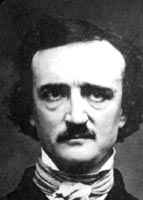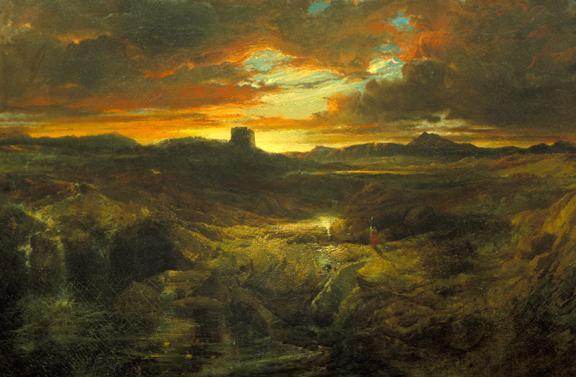 |
| Fortunato (left) and Montresor (Wikimedia) |
--------
Skip to:
Sorry, Stephen King: Edgar Allan Poe (1809-1849) still reigns as America's all-time greatest horror writer. And we're not just talking "ghost stories," but the horror that lies in the depths of the human soul. Case in point: the 1846 story "The Cask of Amontillado," in which an obviously-mad narrator named Montresor--"my treasure," reminding us of Gollum and his "precious"--takes revenge for some unnamed insult on his inaptly-named "friend," Fortunato ("Lucky").
The form of the revenge itself is horrifying enough, but the manner of Montresor's behavior chills the reader to the bone. He is devious, clever--and heartless, to the point where he actually pauses in his work to take pleasure in Fortunato's distress. And, he gets away with it; unlike the conclusion of, say, "The Tell-Tale Heart," there is no Justice here. There is no guilty conscious, but rather a boastful satisfaction.Yikes.
Note: Items in [square brackets] and the notes were added by yours truly.
--------
- Read more about "The Cask of Amontillado" at Wikipedia
- Read more stories by Edgar Allan Poe FREE online










